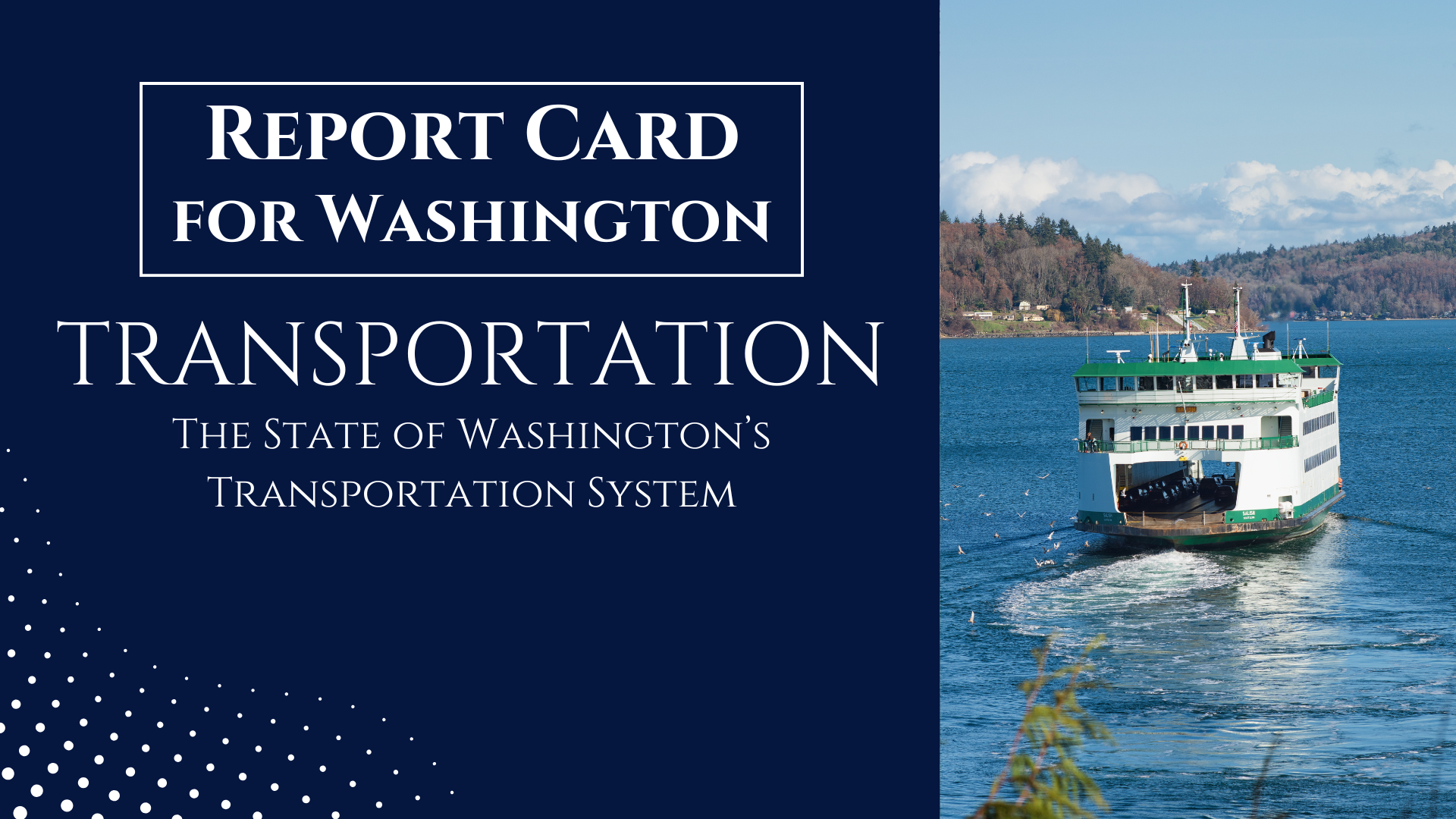Related Articles
In September of last year, I wrote a blog about Sound Transit officials using public money to advance their political interests. This was sparked by Sound Transit’s admission in August 2016 that they gave 173,000 private email addresses of ORCA cardholders to the pro-ST3 political campaign, Mass Transit Now.
A little over a year later, the Senate Law and Justice Committee held their second hearing into the public agency to investigate its use of public money leading up to the ST3 campaign.
There were a number of takeaways from this final hearing. Here are a few that stood out to me.
If Sound Transit officials cannot be honest about small things, how can people trust them to be honest about big things?
Sound Transit’s Executive Director for Communications and External Affairs, Craig Davison, testified and answered a series of questions about Transportation Choices Coalition and Mass Transit Now, in relation to the ORCA cardholder leak. Unfortunately, he chose not to answer questions directly and likely made the process longer and more painful than it should have been.
When asked if ST3 was something he took interest in given his position at Sound Transit, he responded with, “It definitely was a thing that was happening.”
When asked if he read Brier Dudley’s investigative piece in The Seattle Times, he stated he did not. He went on to say that he did not recall a pertinent article in the last week and a half and asked for a specific title. This was a peculiar statement given his job at Sound Transit. Only after Davison was directed to the article itself – “Who’s really in the driver’s seat on Puget Sound transit spending?” – did he then admit, “I actually do recall that title.”
When asked if he, as a Communications employee, reads other similar articles about the agency he works for and Transportation Choices Coalition, he again could not recall.
When asked about Abigail Doerr, Davison stated that he did not know who she was in March 2016 when the request for emails came in. He said he only learned of who she was when Geoff Patrick, Sound Transit’s Media Relations and Public Information Manager, told him about her employment at Transportation Choices Coalition. Davison said he was “suspicious” and worried that the request “might pose a security problem for our existing email subscribers.” Even so, after Davison was told who Doerr was, neither he nor Patrick chose to share that information with the person fulfilling the public disclosure request. This choice seems inconsistent with his supposed concern for customer security.
Davison later shared that although there were no disciplinary or adverse actions taken against any employee who was involved in the leak of private information, “every employee involved carried a heavy burden and was not happy with how any of these events unfolded.”
Despite his concerns about the release of customer information and the “heavy burden” he says agency staff felt, we learned that Davison donated $250 to the campaign in May 2016, two months after the initial request for emails came in, and quadrupled his donation to $1,000 in October 2016, two months after the complaint was filed.
Sound Transit gave taxpayer money to Transportation Choices Coalition (in the form of membership dues and sponsorships) while Sound Transit employees were also individually donating money to the Mass Transit Now pro-ST3 campaign.
As we shared in an August publication, Sound Transit increased payments to political advocacy groups leading up to the ST3 campaign. The agency also increased its own communications budget. In addition, Sound Transit employees and officials were donating money to the ST3 campaign. In other words, a great deal of money saturated the ST3 campaign effort, whether direct or indirect.
While all of this may be legal, is it right? Spending millions in taxpayer dollars to promote ST3 and transit through nonprofits and massive communications budgets seems counterintuitive for an agency that claims everyone is clamoring for more of their services already.
One bill the legislature may consider next session would tighten the ability of employees to donate to campaigns for ballot measures that benefit the public agency for which they work. Another bill could tighten restrictions on public agencies giving taxpayer money to nonprofits that then support ballot measures that result in greater tax revenue for the public agency. These policy changes would help to increase public trust.
Sound Transit has a cozy and questionable relationship with Transportation Choice Coalition, which had a cozy and questionable relationship with the Mass Transit Now campaign.
The Executive Director of Transportation Choices Coalition, Shefali Ranganathan, testified and was also questioned by lawmakers about the ORCA cardholder leak.
Transportation Choices Coalition was closely allied with Mass Transit Now, a political 501(c)(4) organization created for the purpose of conducting campaigns in support of increasing Sound Transit’s tax revenue. At the same time, Transportation Choices Coalition receives public money from Sound Transit.
According to Ranganathan, Abigail Doerr, the person who requested the emails from Sound Transit, took a leave of absence as Advocacy Director of Transportation Choices Coalition to work as the Campaign Manager for the Mass Transit Now campaign. She requested the emails in her position with the campaign.
When asked about the emails, Ranganathan explained, “We were never aware of whether or not these emails were disclosable. We found out just like everybody else when The Seattle Times wrote a story about it. And then I believe it was counsel Desmond Brown that contacted Miss Doerr and asked her to remove the emails from the database, and we did so immediately [emphasis added] …When we found out, we immediately removed those emails.”
In this response, Ranganathan conflated Transportation Choices Coalition with the Mass Transit Now campaign. Although it was Doerr of Mass Transit Now who was asked by Sound Transit to remove the emails, Ranganathan said “we” removed the emails. This was likely a Freudian slip, but speaks to how muddy the relationship is between the two entities.
One lawmaker caught the discrepancy and followed up with a question about Transportation Choices Coalition removing the emails. Ranganathan must have not caught her earlier slip, as she responded, "No, I said the Mass Transit Now campaign removed the emails."
Sound Transit officials double down on the claim that they were “perfectly clear” with voters, despite both voters and lawmakers saying they feel mislead.
Throughout both investigatory hearings, Sound Transit’s spokesperson, Geoff Patrick, continued to make the case that Sound Transit was perfectly clear with voters about the tax increases they would experience. I won’t go into this too much, as this was covered extensively in the first investigatory hearing.
John Niles, a transportation expert, testified on behalf of himself and Smarter Transit that this is simply not true, particularly with regard to Sound Transit’s tax calculator. Among the several points he made, he correctly noted there was no reference to how our state government calculates vehicle value in the voter guide, and the tax calculator only told voters their “total tax bill and monthly tax bill…It’s all bundled together. The MVET was not highlighted at all in the tax calculator.”
Neither the tax calculator nor the colorful voter guide Sound Transit mailed to voters were "perfectly clear" presentations of Sound Transit's proposed tax burden.
It was remarkable to see Sound Transit’s consistent dismissal of lawmakers’ and voters’ anger and frustration, even after agency officials were presented with their own time-stamped information and factual observations. I was reminded of a scene from the comedy movie Naked Gun:

There is absolutely a perception that Sound Transit officials and their supporters would like people to simply comply with unfair tax overcharges and avert their eyes to the costly problems Sound Transit continues to have. However, just because a ballot measure passed does not mean that the public should not continue to hold government accountable. People value honesty, fairness and accountability, so it does not appear this will go away any time soon.






